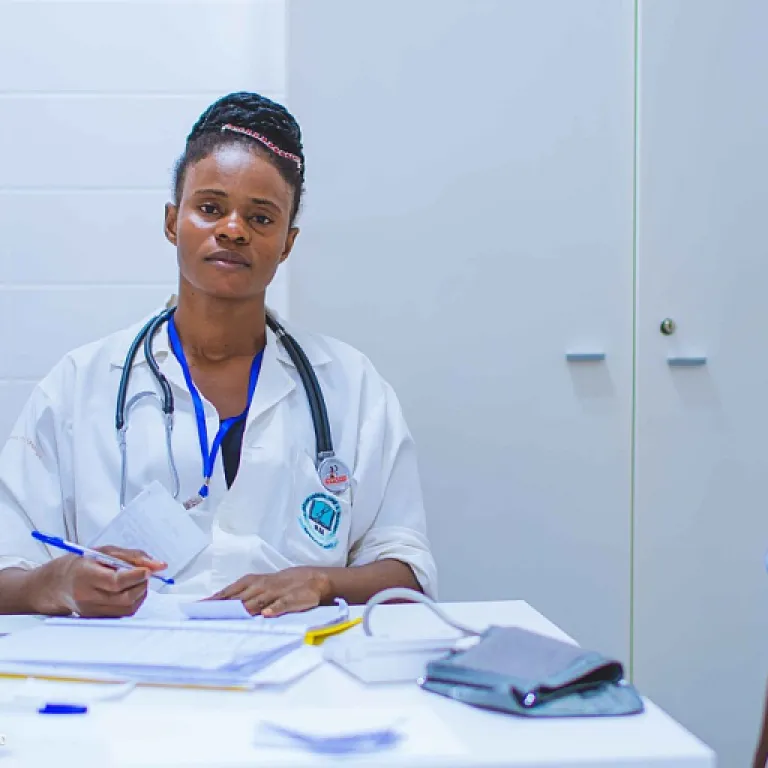
Understanding the Interview Process at DO Schools
Demystifying the School Interview Process
Embarking on the journey to become a medical professional begins with understanding the school interview process. Top schools emphasize not just academic qualifications but also personal traits that showcase a student's potential to excel in the medical field. The interview day is a pivotal milestone for most applicants, serving as an opportunity to demonstrate a fit for the admissions committee expectations.
Firstly, students must navigate a rigorous selection pathway. Schools meticulously evaluate factors like personal statements and community service engagement before extending interview invitations. By this stage in the admission cycle, applicants have already proven they meet the academic benchmarks set by these illustrious institutions. Now, the real test revolves around how well potential students can articulate their passion, exhibit professional demeanor, and express dedication to lifelong learning.
An effective school interview requires more than rehearsed answers. Instead, emphasizing experiences in real-world medical settings and continuous learning can set apart top contenders. The journey doesn't end after the interview; medical schools often look for consistent growth among applicants. Therefore, sustained effort towards enhancing medical-related skills even after the interview can impact the chances of acceptance positively.
The Role of Continuous Learning in Medical School Applications
The Significance of Lifelong Learning in Medical School Admissions
Continuous learning isn't just a buzzword in the realm of medical school applications; it's a crucial component that many admissions committees look for when evaluating candidates. From the initial application stages to the moment after the interview, schools seek applicants who demonstrate a genuine commitment to expanding their knowledge and skills over time. Medical school is inherently rigorous, demanding students to stay abreast of ever-evolving medical practices and knowledge. Thus, admissions committees appreciate applicants who have demonstrated an ability to adapt and grow through lifelong learning. Here’s why:- Adaptability: The ever-changing landscape of healthcare requires adaptability. Students who can showcase how they’ve adapted to changes through continuous education indicate they could thrive in medical school environments.
- Depth and Breadth: A commitment to ongoing learning often indicates a commitment to gaining both depth and breadth in medical knowledge. This is crucial for providing holistic care to patients in the future.
- Evidence of Initiative: Whether it's obtaining additional certifications, engaging in research, or participating in community service, initiatives taken during pre-med years can be critical in augmenting one's application. These efforts demonstrate initiative—an admired trait in the eyes of medical committees.
- Improved Competency: Interviews are often a platform where students need to discuss their competencies. Continuous learning reflects a proactive approach to sharpening skills, which could improve applicants' readiness for the rigors of a school interview.
What Happens After the Interview?
After the adrenaline of the interview day subsides, many applicants find themselves in a state of anticipation as they await their fate. Medical schools have different strategies to evaluate candidates after their interviews. Understanding what happens next can provide clarity and help manage expectations as you navigate this critical phase of your medical school application.
The Waiting Game: Evaluations and Decisions
Once the interview is complete, candidates enter the post-interview phase where schools delve into comprehensive evaluations. Most schools utilize a holistic approach, considering both academic and non-academic factors. This is where the role of continuous learning becomes even more significant. Admissions committees appreciate applicants who demonstrate an ongoing commitment to expanding their knowledge and skills, as it reflects their potential for growth in the medical field.
The admissions committee will reconvene to review each applicant’s entire file, which includes academic records, personal statements, and the insights gathered from the interview evaluation. This post-interview review is crucial, as it incorporates subjective data from interviews and interactions with faculty during the interview day, which was previously discussed. This comprehensive review ensures that applicants are assessed not only on academic metrics but also on their interpersonal qualities and readiness for the demands of medical school.
Factors Influencing the Final Decision
During this evaluation period, the admissions committee considers several common factors influencing acceptance. These factors are varied and encompass:
- Interview Performance: How well an applicant communicated, responded to interview questions, and engaged with the interviewers and med school community.
- Continuous Improvement: Demonstrated through community service or by staying informed on medical trends, making you a more attractive candidate.
- Letters of Recommendation: Strong endorsements from credible sources that emphasize the applicant’s suitability for a medical career.
It is essential to remember that acceptance rates vary, and while the waiting period might be taxing, it represents an opportunity to keep refining one’s skills and knowledge. Applicants who continue to demonstrate enthusiasm for learning can subtly bolster their chances for an eventual call from their top choice schools.
In the meantime, prospects can check in with their application status and remain engaged in productive activities related to their career goals. Waiting doesn’t have to be idle; engage with resources like thriving in the world of analytical competition to further enhance your profile for future opportunities.
Common Factors Influencing Acceptance
Key Determinants in the Path to Acceptance
Navigating the admissions process for medical schools is not just a test of your knowledge and skills, but also a thorough evaluation in various areas. Most students often find themselves at a crossroads, pondering which factors weigh most in determining their acceptance into their top med school choice. There are several elements that admissions committees meticulously assess post-interview. Here's a breakdown of these common influencing factors:- Performance During Interviews: The school interview plays a pivotal role in gauging a candidate's readiness and compatibility with the school's ethos. Schools are looking for candidates who reflect their values, mission, and vision through their responses to interview questions.
- Comprehensive Application: A stellar application speaks volumes. This includes not only your personal statement but also your secondary applications. These documents should reflect your dedication, community service involvement, and alignment with the medical college's core values.
- Academic Achievements: Although many believe that pre-med accomplishments, like GPA and MCAT scores, weigh heavily, it's essential to remember that this is a holistic evaluation. Continuous learning and growth over the years, evidenced by consistent improvement and challenging academic pursuits, are valued.
- Character and Personal Qualities: The admissions committees are keen on applicants who demonstrate resilience, empathy, and a genuine passion for medicine. These qualities often shine through not only in interviews but also in recommendation letters and personal essays.
Enhancing Your Chances with Continuous Learning
Boosting Your Profile with Ongoing Education
For most applicants navigating the path of medical school admissions, enhancing their application through continuous learning has become increasingly vital. As medical schools consistently raise the bar for applicant evaluation post-interview, demonstrating a commitment to ongoing education can significantly bolster your chances of acceptance.
One of the primary areas where students can show their dedication is through supplementary courses related to medicine or roles supporting medical ethics and policies. These courses show the admissions committee that applicants don't just rest on their laurels after sending in their applications. Instead, they are proactive in seeking knowledge that might make them more effective med school candidates.
Moreover, engaging in community service, particularly in healthcare settings, can reflect your commitment to both service and learning. Applicants who spend time volunteering at medical facilities or health workshops often gain practical experience that complements their academic knowledge. These experiences provide rich material to discuss during school interviews or secondary applications.
Creating a structured yearly plan that includes these educational and community activities can make a significant difference. As you continue to progress along this path, be sure to highlight these learning opportunities and experiences in your personal statement and interviews. They not only reflect well on your application but also showcase your stability and growth as a medical candidate.
The most successful applicants have found that, by staying engaged with educational opportunities and community involvement, they close the loop between theoretical learning and practical application. Hence, remember that the journey doesn’t end with receiving an interview invitation. Instead, it’s about constantly growing and preparing to become the standout candidate that medical schools seek even in the late stages of the admission cycle.
Real-Life Success Stories
Success Stories: Continuous Learning in Action
Continuous learning plays a pivotal role in the journey of many successful medical school applicants. These individuals often share a common trait: a commitment to lifelong learning that extends beyond the classroom. Let's explore how this dedication has helped some applicants secure their spots in top medical schools.
One applicant, after receiving an interview invitation, realized the importance of staying updated with the latest medical research and advancements. By engaging in online courses and attending medical seminars, they were able to discuss current medical trends confidently during their school interview. This proactive approach not only impressed the admissions committee but also demonstrated their genuine interest in the field.
Another student focused on enhancing their personal statement by integrating experiences from community service projects. These projects were not just about fulfilling a requirement; they were opportunities for continuous learning. By reflecting on these experiences, the student could articulate their growth and understanding of patient care, which resonated well with the admissions team.
For some, the journey doesn't end after the interview day. One applicant, who initially faced rejection, didn't let this setback deter them. Instead, they used the time to further their education through secondary applications and additional certifications. This dedication to improvement and learning eventually led to acceptance in the next admission cycle, proving that persistence and continuous learning can significantly enhance one's chances of acceptance.
These stories highlight that while academic achievements are crucial, the willingness to learn continuously and adapt can set applicants apart. Medical schools value candidates who demonstrate this quality, as it reflects their potential to thrive in the ever-evolving medical field.












